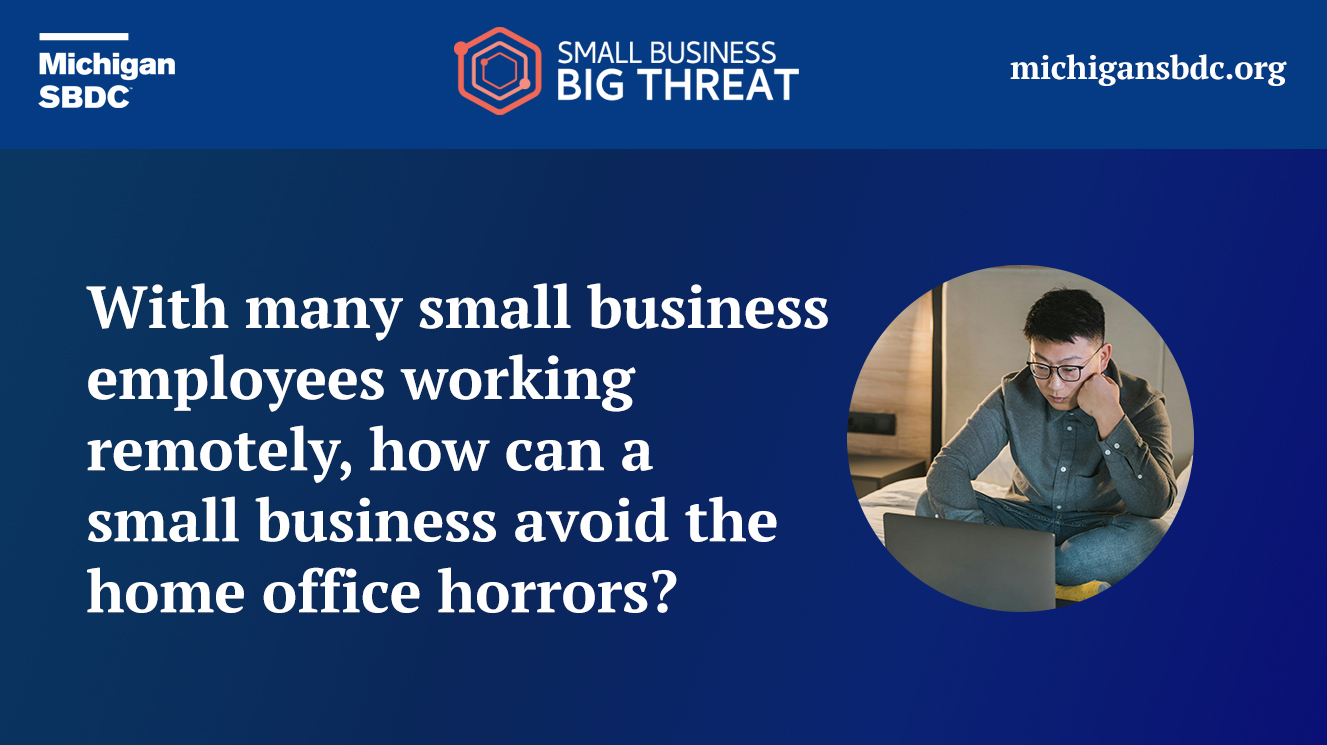 With many small business employees working remotely, how can a small business avoid the home office horrors? According to Upwork 22% of the workforce will become remote workers by 2025. Breaking news, 2025 is just right around the corner! So back to the question, how can a small business avoid the home office horrors?
With many small business employees working remotely, how can a small business avoid the home office horrors? According to Upwork 22% of the workforce will become remote workers by 2025. Breaking news, 2025 is just right around the corner! So back to the question, how can a small business avoid the home office horrors?
A shared responsibility
Securing the home network is the responsibility of both the small business and the employee working from home. This is the same as working in an office; cybersecurity is a shared responsibility.
The small business needs to implement cybersecurity policies, cybersecurity tools, provide cybersecurity awareness training and education to employees, and follow cybersecurity best practices.
Employees of a small business need to adhere to the business policies, utilize the tools provided (and not work around them), and take the awareness training seriously as it is important, and follow the best practices the business is following.
Home office basics
Some of the very same cybersecurity basics for the office apply at the home too. Employee accounts need to have complex and unique passwords and when possible multifactor authentication. If the employee needs to access confidential and sensitive information, utilize a virtual private network (VPN) to better protect the data. Ensure software is updating in a timely manner. Regularly backup the business data. Having an incident response plan, especially one that strategizes for remote work, is crucial. Lastly, awareness of best practices like being able to identify a phishing email needs to happen.
- Complex and unique passwords
- Multifactor Authentication
- Virtual Private Networks (VPNs)
- Software Updates
- Data backups
- Incident response plan
- Awareness of best practices
The next level home office
Having the home office basics isn’t the end of securing your employees when they work remotely. There are more advanced actions a small business can take, like regular cybersecurity audits, practicing the incident response plan, verifying the integrity of the data backups and practicing restoration of data, and phishing testing the employees.
These aren’t the only basics and advanced steps a small business can take to better cybersecure itself, but these are a solid security foundation to build upon! So to avoid the home office horrors, start implementing these best practices today!
Subscribe to our monthly email newsletter to keep your small business up-to-date on all the latest cybersecurity news! For more information on home network security and other cybersecurity topics check out Small Business, Big Threat!